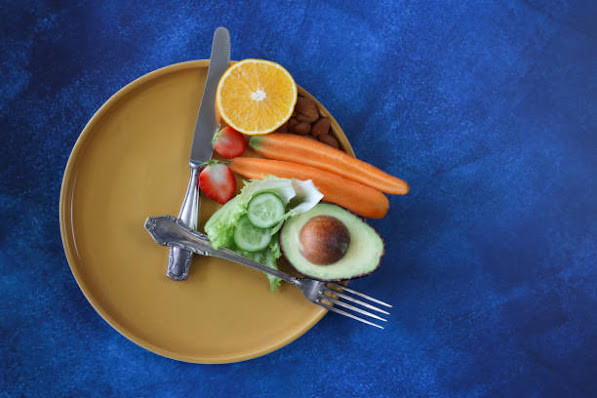Losing weight and shedding excess fat can feel like a challenging
journey, especially with the overwhelming number of diet options available
today. From keto and paleo to intermittent fasting and plant-based diets, each
claims to be the ultimate solution for weight loss. However, the truth is that
the best diet for weight and fat loss depends on individual needs, preferences,
and lifestyle. We’ll break down the most effective dietary approaches, their
benefits, and how to find the best one for you.
Understanding Weight
Loss: The Basics
Before diving into specific diets, it's important to understand how
weight loss works. The key principle behind losing weight is creating a calorie
deficit-burning
more calories than you consume. This can be achieved by:
·
Eating fewer calories
·
Increasing physical activity
·
A combination of both
While calorie deficit is the foundation, the quality of food you
consume also matters. Nutrient-dense foods provide essential vitamins,
minerals, and energy that support overall health, making weight loss more
sustainable.
Top Diets for Weight and
Fat Loss
1. The
Mediterranean Diet
One of the healthiest and most sustainable diets, the Mediterranean
diet focuses on whole foods like fruits, vegetables, whole grains, lean
proteins, nuts, and olive oil. It includes moderate consumption of dairy, fish,
and poultry while limiting red meat and processed foods.
Why it works:
·
High in fiber and healthy fats,
keeping you full longer
·
Rich in antioxidants, reducing
inflammation
·
Encourages portion control and
mindful eating
Best for: People who prefer a balanced, heart-healthy diet that doesn’t
require extreme restrictions.
2. Low-Carb Diets (Keto, Atkins, and Modified Low-Carb)
Low-carb
diets minimize carbohydrate intake and focus on proteins and healthy fats. The
ketogenic (keto) diet, for example, aims to induce ketosis, where the body
burns fat for fuel instead of carbohydrates.
Why it works:
·
Reduces insulin levels, helping
the body burn fat more effectively
·
Suppresses appetite, leading to
lower calorie intake
·
Rapid initial weight loss due
to water loss and fat burning
Best for:
Individuals who enjoy fatty foods, want fast results, or struggle with insulin
resistance.
3. Intermittent Fasting (IF)
Intermittent fasting isn’t a diet in the traditional sense but
rather an eating pattern that cycles between periods of eating and fasting.
Popular methods include the 16:8 method (fast for 16 hours, eat within an
8-hour window) and the 5:2 method (eat normally for 5 days, reduce calories on
2 days).
Why it works:
·
Reduces overall calorie intake
without complex meal planning
·
Enhances fat burning and
improves metabolic health
·
Can be adapted to any dietary
preference
Best for: People
who prefer a structured eating schedule and don’t mind skipping meals.
4. Plant-Based Diets (Vegan and Vegetarian)
Plant-based
diets focus on whole, plant-derived foods while eliminating or reducing animal
products. A well-balanced plant-based diet includes fruits, vegetables,
legumes, nuts, seeds, and whole grains.
Why it works:
·
Typically lower in calories,
promoting weight loss
·
High in fiber, keeping you full
longer
·
Reduces risk of chronic
diseases
Best for: Those
who prefer plant-based foods or want to support environmental and ethical
causes while losing weight.
5. High-Protein Diets
A
high-protein diet emphasizes protein intake while moderating carbs and fats.
Commonly used by athletes and bodybuilders, this approach helps build muscle
and reduce fat.
Why it works:
·
Protein increases satiety,
reducing overall calorie intake
·
Supports muscle retention while
losing fat
·
Boosts metabolism due to higher
thermic effect of protein digestion
Best for: People
looking to preserve muscle mass while losing weight.
6. The DASH Diet
Originally
designed to lower blood pressure, the DASH diet (Dietary Approaches to Stop
Hypertension) also supports weight loss. It promotes fruits, vegetables, whole
grains, lean proteins, and low-fat dairy while limiting salt and processed
foods.
Why it works:
·
Encourages nutrient-dense foods
and portion control
·
Lowers risk of heart disease
and diabetes
·
Sustainable and easy to follow
Best for: Those who want a structured but
flexible diet focused on overall health.
Choosing the Right Diet
for You
With so many diet options, choosing the right one depends
on:
·
Personal preferences: If you love carbs, a low-carb diet might not be sustainable.
·
Lifestyle: If you have a busy schedule, intermittent fasting might work better
than meal prepping for a structured diet.
·
Health conditions: If you have diabetes, keto or low-carb may be beneficial, while
plant-based diets can help with heart health.
·
Sustainability: The best diet is one you can maintain long-term without feeling
deprived.
Additional Tips for
Successful Weight Loss
Regardless of the diet you choose, these strategies will
help you stay on track:
1. Focus on Whole Foods
Highly processed foods are calorie-dense but low in
nutrients. Choose whole, unprocessed foods to keep you fuller and healthier.
2. Control Portions
If consumed in excess, even healthy foods can lead to
weight gain. To avoid overeating, pay attention to the sizes of your meals.
3. Stay Hydrated
Drinking enough water helps control hunger, supports
digestion, and improves overall well-being. Sometimes, thirst is mistaken for
hunger.
4. Get Enough Protein and Fiber
Protein keeps you full and supports muscle maintenance,
while fiber aids digestion and promotes satiety.
5. Exercise Regularly
Diet alone is powerful, but combining it with exercise
maximizes results. Strength training preserves muscle, while cardio helps burn
extra calories.
6. Be Patient and Consistent
Quick fixes don’t last. Long-term success requires
patience, consistency, and finding a diet that fits your lifestyle.
Final Thoughts
There is no one-size-fits-all diet for weight and fat loss. The best
diet is the one that aligns with your lifestyle, preferences, and health goals.
Whether it’s the Mediterranean diet, keto, intermittent fasting, or plant-based
eating, the key is sustainability. Focus on whole foods, create a calorie
deficit, and find a plan that you can stick with in the long run. Weight loss
is a journey-embrace it with a balanced, enjoyable, and healthy approach.






.jpg)


.jpg)

.jpg)

.jpg)
0 Comments